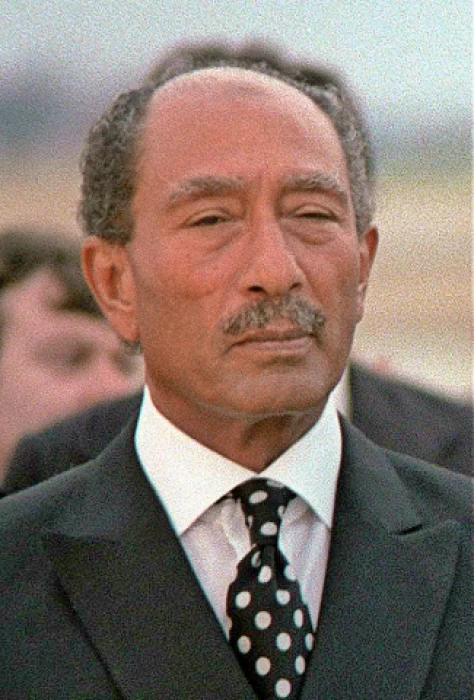
President Mohamed Anwar Sadat
President Mohamed Anwar Sadat
Born on 25 December 1918, President Sadat, who ruled Egypt from 1970 until his death on 6 October 1981, was known for his love of culture and writing books.He first entered prison in 1941 during his military service, and Sadat recorded his suffering in prison in the form of a daily diary published in 1970 in Beirut under the title ‘30 Months in Prison.’
This diary was published in Al-Musawwar magazine before 1948, where Sadat recounts his experience in the famous cell 54 in Tora prison, and deals with it in a very human literary way, and is an important source of knowledge about what was happening in the prisons of political detainees during this period.
In 1950, he returned to the armed forces with the rank of Yuzbashi, despite the fact that his colleagues had preceded him with the ranks of Saghir and Bekbashi. He was promoted to the rank of Saghir in 1950 and Bekbashi in 1951, and in the same year Nasser chose him as a member of the founding body of the Free Officers Movement.
He served as editor-in-chief of Al-Jumhuriya newspaper (1955-1956), was appointed Vice President of the Republic from 1964 to 1970, succeeded Nasser as President of Egypt in 1970, and served as Prime Minister from 1973 to 1981.
He was assassinated because, while Sadat enjoyed a growing popularity in the West, back at home it was imploding on account of the backlash towards the treaty, the worsening economic situation, and Sadat’s handling of dissent. During Sadat's extensive silencing of the opposition in September 1981, more than 1,500 people from varied political orientations were arrested as part of Sadat’s haya.
Sadat was killed by members of the Egyptian Islamic Jihad movement on the sixth of October in 1973, the month after, as part of the Armed Forces Day parade. Two explosives exploded as Sadat arrived on the site, saluted, laid a wreath at the Tomb of the Unknown Soldier, and sat watching the Egyptian Air Force display. Attackers rushed into the audience and started firing at the dignitaries after escaping from a military truck parked just in front of the main platform, where the parade president was seated.
Anwar Sadat has been a figure of great controversy even after his death. To some, he is a national figure and peacemaker in the Middle East even being the first to hold such an image. To others, he is a polarizing individual both within and outside his country. Of course his legacy cannot be ignored in the context of Egypt and the Arab world.
Sadat, on the global stage, is acknowledged as one of the few protagonists that changed the Middle East. The peace treaty he signed with Israel was not merely a two-way agreement but rather the beginning of something much larger the re-alignment and restructuring of the relations of Arab states with Israel, which, however, fully came to be many years later.














